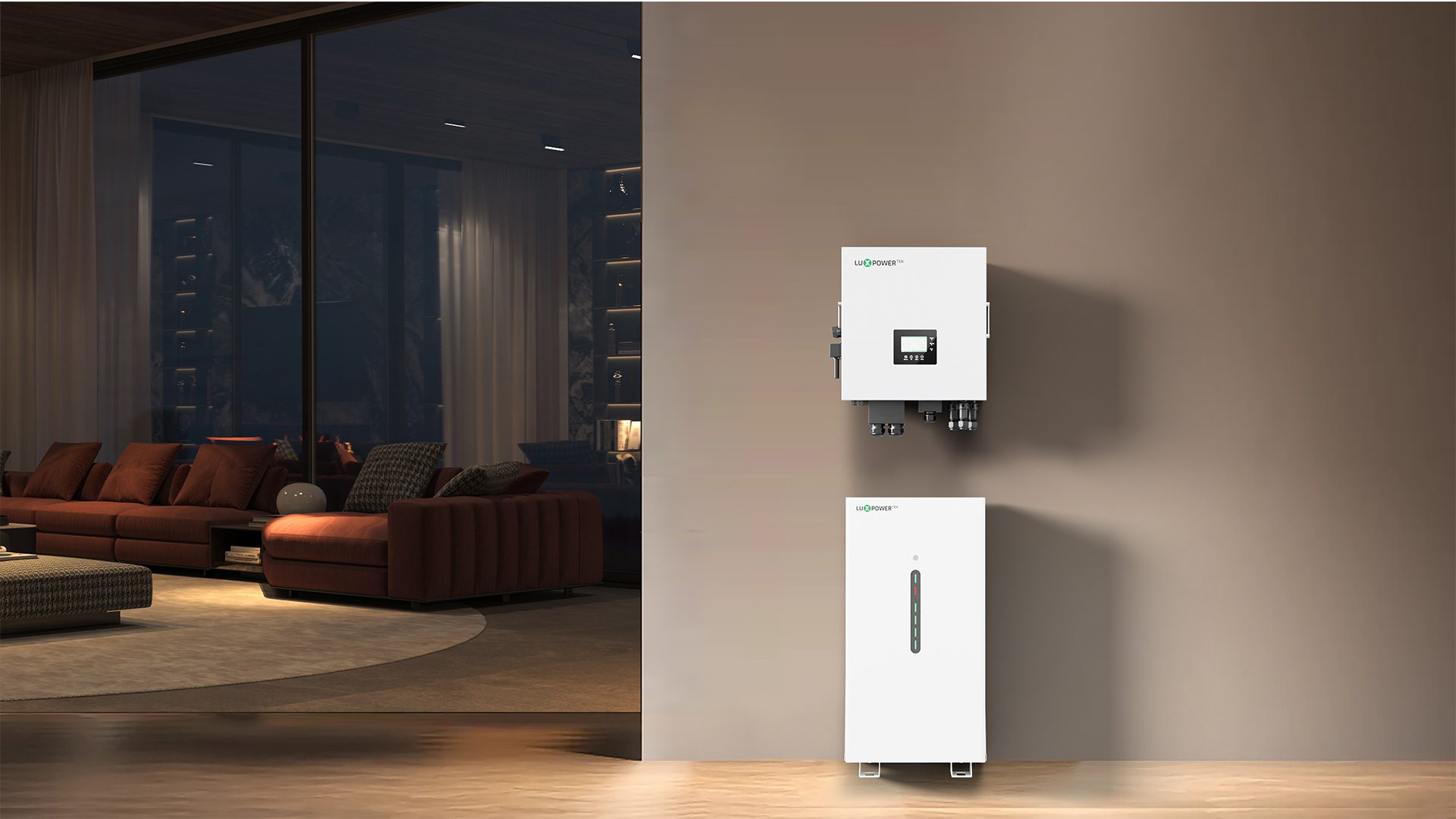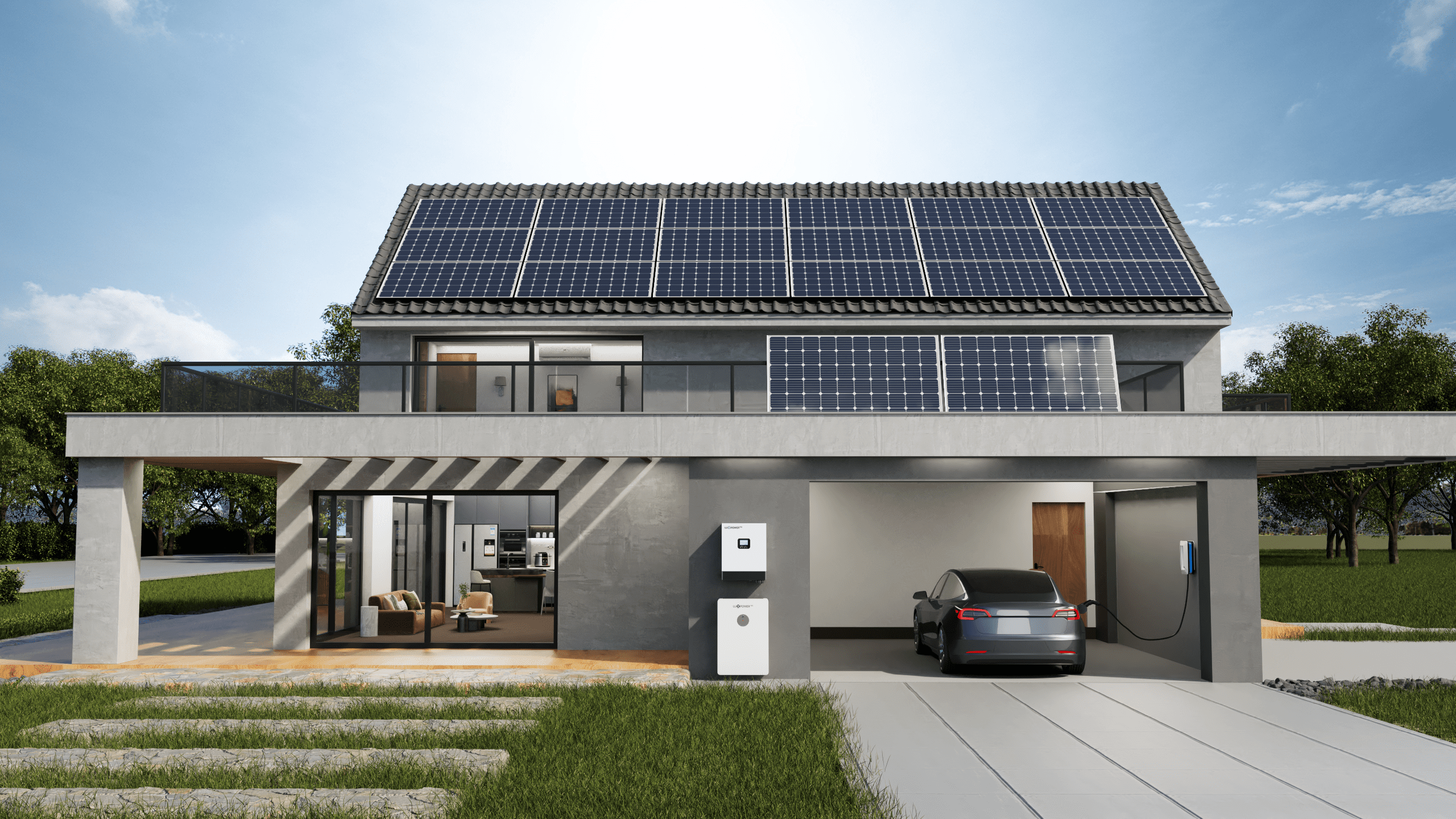As electricity prices continue to rise and grid supply remains unstable, more Nigerian households are seeking smarter and more efficient ways to power their homes. A hybrid solar system—which combines solar energy, battery storage, and grid power, is becoming the go-to solution. LuxpowerTek’s hybrid inverters are helping Nigerian families achieve real savings through flexible operation and intelligent energy control.
1. How Does a Hybrid System Work?
A hybrid solar system automatically switches between three energy sources:
- During the day: solar energy powers the home and charges the battery
- At night or peak hours: battery supplies power
- When the battery is low: the grid kicks in as backup
This approach minimizes grid reliance during peak tariff periods, significantly lowering utility bills.
2. How Luxpower Hybrid Inverters Reduce Energy Costs
① Time-of-Use Charging Mode
Luxpower inverters feature built-in TOU (Time-of-Use) functionality. Users can set charge and discharge schedules based on tariff zones, such as:
- Charging batteries during off-peak hours;
- Discharging during expensive peak periods.
This results in noticeable savings on electricity bills.
② AI Smart Mode for Automation
With AI-based load optimization, the system can automatically decide when to charge or discharge batteries based on usage history, electricity cost, and PV output—no manual setup needed.
③ Generator and Solar Integration
Many Nigerian homes rely on diesel generators. Luxpower inverters can integrate seamlessly with generators to charge batteries and maintain home power, reducing diesel use and noise.
④ Multiple Operation Modes
Choose between Battery First, Load Priority, Economic Mode, or AC First to match different scenarios like residential, small business, or off-grid farms.
3. Real Feedback: Up to 30% Cost Reduction
After installing an GEN2-LB-EU 12K hybrid inverter, Mr. Musa from Abuja paired his rooftop 6kWp PV system with a 10kWh battery. His monthly electricity cost dropped from ₦38,000 to ₦26,000. “It switches to solar automatically, even runs my AC during the day without worries,” he said.
4. Recommended Hybrid Models
|
Model |
Power Range |
Battery Type |
MPPTs |
Key Features |
|
GEN series |
3-6kW |
48V lithium/lead-acid |
2 |
Effciency 94.5%, Comm Wi-fi/RS485 |
|
GEN series |
7-10kW |
48V lithium/lead-acid |
2 |
Max. charging and discharging current: 210A |
|
GEN2 series |
3-6kW |
48V lithium/lead-acid |
2 |
18A Max. PV Input Current per MPPT, 24/7 Real-Time Monitoring |
|
GEN2 series |
7-14kW |
48V lithium/lead-acid |
3 |
AI-Driven optimization mode for e-bill reduction |
5. The Future: Hybrid + Smart Energy Management
As Nigeria continues modernizing its power infrastructure and tariff plans, hybrid solar systems with TOU and smart control will become the norm. LuxpowerTek offers not just a product, but a forward-looking energy solution.











